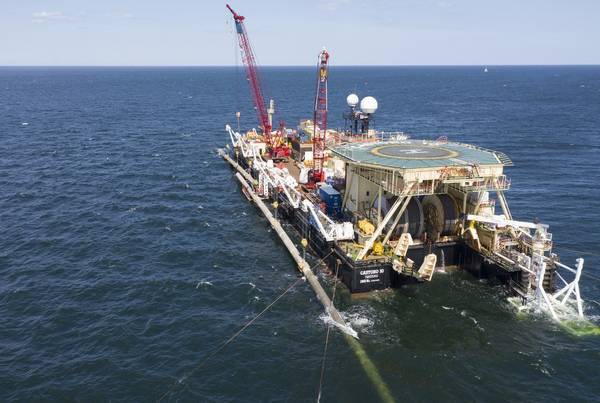
Germany's energy regulator said on Tuesday it had suspended the certification process for the Nord Stream 2 pipeline to pump Russian gas and said the Swiss-based consortium needed to form a company under German law to secure an operating licence.
The pipeline has faced opposition from the United States and some European states, which say it will make Europe too reliant on Russian gas, although surging gas prices in Europe due to a jump in global demand has fuelled some calls for more Russian supplies.
The regulator, the Bundesnetzagentur, said the Swiss company had decided not to turn itself into a German company but had set up a subsidiary under German law to deal with the section of the pipeline on Germany territory.
"A certification for the operation of Nord Stream 2 will only be considered once the operator is organized in a legal shape compliant with German law," the regulator said.
The regulator said it would only assess an application after a transfer of major assets and budgets for staffing to the German subsidiary.
Once these preconditions had been met, the regulator said it could continue assessing the submission in the remainder of a four-month application period, which runs to early January.
Nord Stream 2 said it had been notified by the regulator but added: "We are not in the position to comment on the details of the procedure, its possible duration and impacts on the timing of the start of the pipeline operations."
Ukrainian gas companies Naftogaz and GTSOU were given notice on Monday that they would be included in the German certification procedure of the pipeline.
Ukraine opposes the pipeline and will lose revenues if gas from Russia bypasses pipelines on Ukrainian territory.
The head of the Ukrainian energy firm Naftogaz welcomed the German regulator's decision to suspend certification.
The regulator also said the Berlin economy ministry and the European Commission had been made aware of its notice to Nord Stream 2. The Commission has two months after the German regulator's decision to assess the application for its part.
(Reporting by Vera Eckert, additional reporting by Vladimir Soldatkin, editing by Miranda Murray and Edmund Blair)